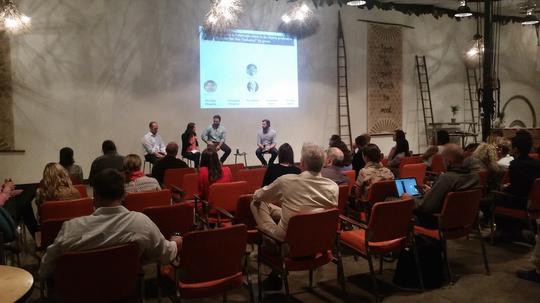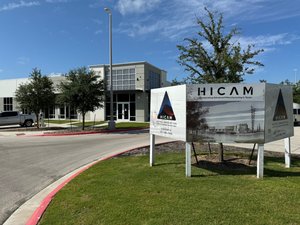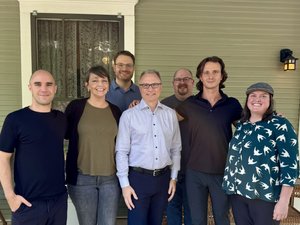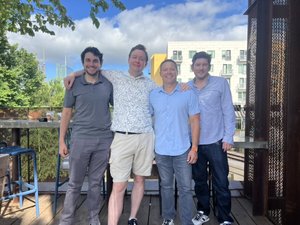
When you get a bunch of innovative, socially-motivated people together to talk about where social impact entrepreneurship is headed, the conversation has no cozy guardrails. No well-defined turf to play on. And, at times, it's no holds barred.
But then there are the hugs. And the conversations that cross socio-economic lines and span continents. And the idea that we don't have to play inside any of those constructs anymore. Welcome to social innovation in Austin -- and worldwide, for that matter -- in 2016.
Many in the nascent social good startup scene are exploring what it means to make a real difference in the world outside of traditional nonprofit funding cycles. Do you build something that can scale and last -- or have a big impact on a particular problem ASAP? Can startups become self-sustaining or even profitable and not lose sight of meaningful goals -- no matter how lofty and impossible they can seem at times?
It's even a hot debate when talking about what profit really means any more -- is it measured in changing lives or black ink on the balance sheet or some mix of those things?
Three highly-active social innovation leaders dug into some of those questions Thursday night at Vuka, a south Austin co-working space and the newly unveiled home of Impact Hub, a social impact idea incubator.
“They don’t have to be highly profitable," said Steve Wanta, a former director of Whole Food's Whole Planet Foundation. "But you have to start thinking differently.”
Social impact funds can gather billions from the right people, he said. But, for the startups that get some of that investment, it's really hard to turn serious financial profit while doing meaningful work with the poor.
But maybe that's not what it's all about anyway.
Matt McDonnell, a partner at Notley Ventures, a venture and nonprofit investment firm, said it's ridiculous to expect a social impact startup to quickly ramp up revenue and profit, considering that the majority of all startup businesses work on a long runway before taking off and generating profits. He said that Twitter, for example, operated for a long time and became huge before ever finding profit. And there are countless similar stories. Why not think the same about social impact entrepreneurs?
“A lot of times growth precedes profitability," he said.
The panel, assembled by Austin Inno, was pressed on whether Austin is becoming the social impact capital of the world that Mayor Steve Adler and other community leaders have envisioned.
Zoe Schlag, who launched UnLtd USA to support and accelerate socially-minded startups, said Austin may still have a lot of work to do. But she told the story of connecting with key figures, such as BuildASign.com's Dan Graham, early on after she arrived in the city, and she said that Austin has some powerful attributes.
"This city really gives you a shot if you’re willing to put in the hard work," she said.
Schlag, McDonnell and Wanta seemed to agree that socially-minded startups shouldn't limit themselves to local problems or Austin-specific business models. Mirroring the advice many give to profit-driven startups, the group said that going big and thinking beyond city, state and national borders is a good thing.
And Wanta said many Austinites tend to have a limited understanding of what poverty really looks like in Austin and beyond.
“The reality is we don’t fully comprehend how it is to be poor or the plight of true Africa or all this shit that happens," he said. "We’ve hidden our poor in Austin. We’ve not totally… connected with how shitty it is to be poor and disadvantaged.”
It's easy to forget about that in a startup and tech boom city -- one that has been growing faster than almost every other American city for several years.
But it's also easy to overestimate how much Austin's startup employees are making, given the relatively minimal investment flow for startups of any kind. McDonnell said that most startup workers are lucky to match an entry level school teacher salary.
McDonnell, whose fund with Notley Ventures focuses on sometimes overlooked startups with a social impact, said that many of the founders succeeding in Austin today could play a big role in how Austin's social impact scene grows.
“I think that the younger generation is way more inclined to make these types of investments," he said.
And venture capitalists could also play a strong role through their investment choices.
“Maybe one of the biggest ways we can make a social impact is to fund women and minority businesses," he said.
-- This was Austin Inno's second event in the State of Innovation series. If you dig awesome conversations that dive deep into the top issues facing Austin's tech and startup scene, consider checking out Tech Madness on March 3.








